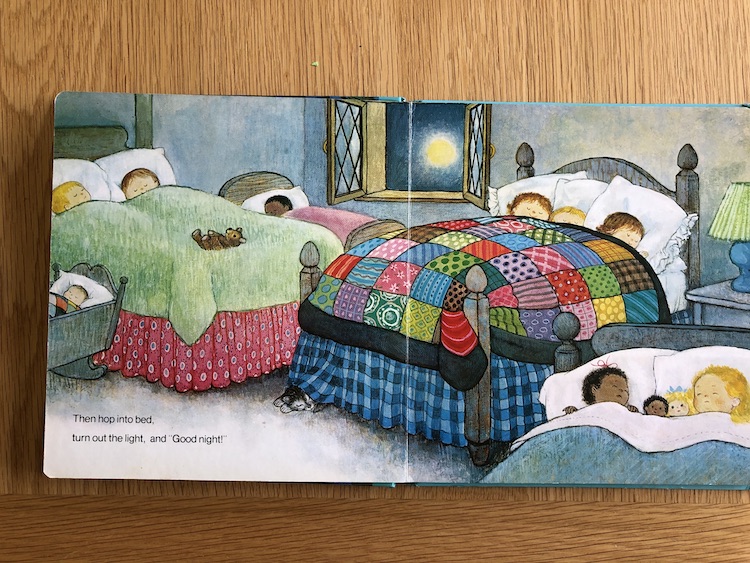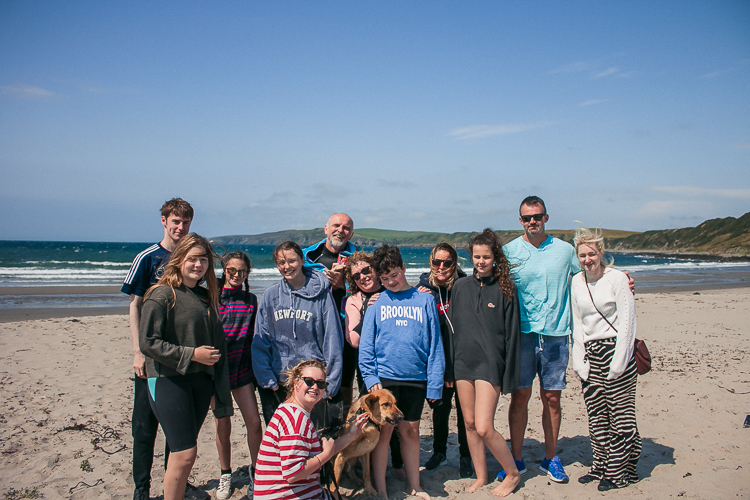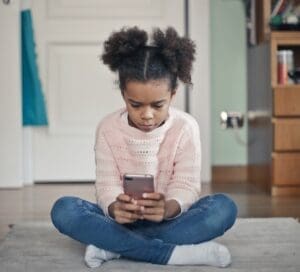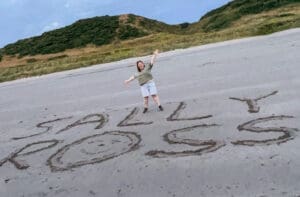
Earlier this week, I found a wonderful childhood memento.
It’s a bedtime story book that I was given at Christmas, by my birth mother. I was five years old, she’d have been 21, maybe 22.
It’s the only thing I have that she ever gave me, and it means the world to me.
I went into foster care as a very young toddler, when my teenage mother couldn’t cope. I had a few placements before landing in long-term foster care. When I was ten, my foster Mum adopted me.
In lots of ways, I’m a textbook “successful” adoptee. I always knew I was adopted, and I know a little about my birth family. I had a pretty happy, secure childhood. I did well at school, got a good job, went on to have a child of my own.
But I know that even the best adoption happens because a child is being removed from their birth family. And that’s not something that can ever NOT leave a trace. Well-meaning adults can trigger painful feelings in an adopted child, with just a few thoughtless words.
So today, I wanted to share five things that you shouldn’t say to an adopted child.
Disclaimer: I’m not a parenting expert OR an adoption expert. This is just based on my experience as an adoptee, and might help other people looking for an insight into an adoptee’s perspective.
“Do You Know your “Real” Parents?”
I cannot tell you the number of people who’ve asked me what I know about my “real” mother.
The people who asked if my brothers were also adopted, or were they my Mum’s “real” children?
Stop for a moment and consider how offensive it is to tell a child that their family isn’t real.
Our family is real. We love each other and get frustrated with each other and make each other laugh and cry just like ANY family.
Oh and while we’re at it, if you’re a journalist who constantly adds the adjective “adopted” when describing someone’s children? Stop it. Please, please just … don’t.
“You’re Special because you were Chosen.”
Another weird thing people say to adopted kids is how amazing and special they are, because they were “chosen”.
So, first of all, whenever someone said that I couldn’t help but think that actually I was adopted specifically because I was NOT chosen by my birth parents. Or the first foster parents. Or the second.
And realistically, I wasn’t chosen by my adoptive parent. I went into the system, where social workers used a checklist to identify a foster family that was close to where my birth mother lived, and had a “vacancy” and experience of children my age. Local authorities are not generally super sentimental about these things.
Sure it might have ended well, but let’s not imagine there was some special choosing moment where a spotlight picked me out, and I was plucked from a cabbage patch by my instantly besotted adoptive mother.
“You Look Like Your Brother.”
Being adopted teaches you one thing really fast – adults talk a lot of nonsense about what kids look like.

When I was young, I was forever being told how much I looked like my brother Ross (not a blood relation), or how I had my grandmother’s chin (also not a blood relation).
I learned pretty fast that when people can’t think of anything to say about a child they don’t know, saying they look like someone else is harmless small talk. But actually it’s just a reminder that we don’t look like our family, and it can lead to some fairly awkward conversations, and painful emotions if a child is already feeling insecure (and adopted children feel insecure a LOT of the time).
Basically unless you know for a fact that a child is a blood relation to someone else, don’t comment on their appearance at all.
“He/She’s Just Acting Out”
One of the things that I hated more than anything was any negative behaviour being attributed to my adoption.
Teachers were particularly prone to this one. As a teenager I truanted from school. I got caught with alcohol on school premises. I faked notes to get out of PE.
And honestly? I got away with a lot of this sort of thing because I was adopted and certain teachers were only too ready to attribute poor behaviour and late essays to my “background”.
I mean – I wasn’t going to disagree, was I?
Actually, I think I was just being a teenager. But every time a teacher looked at my records, and said, “Ah,” like it all made sense, they just reinforced the notion that being adopted is a BAD thing.
“Will you ever try to find your birth parents?”
Whether to trace your birth parents, and WHEN and HOW to do that? It’s one of the most difficult, complicated choices that any adoptee has to make.
Imagine spending your whole life wondering what it was that made someone decide not to keep you. Are you broken? Could they tell, right away?
What would it be like to know people who looked like you? Wondering if you have brothers, sisters, cousins. Do they think about you, on your birthday? How about Mothers Day? Do they even know you exist?
The flip side.
Would it hurt your parents if they felt they hadn’t provided enough family for you? Is it ungrateful to even consider it? What if you find out something you don’t want to know? What if your birth family aren’t good people? What if you just get rejected again?
Now imagine some person you hardly know asking you basically the BIGGEST question you’ll ever ask of yourself, as a way to make nice conversation and satisfy their own curiosity.
Mind. Your. Own. Damn. Business.
Growing up as an adoptee does bring some challenges, and shape your personality, for sure.
For starters, I’m a person who takes rejection VERY poorly. I would rather never speak to someone again than be around someone if I’m not sure they really like me. Also – I’m still bitter that when I was adopted, Mum vetoed my request to be called Steve.
But there are upsides, too. Being adopted has given me an extra appreciation for my family, and the fact that nobody has ever treated me as anything other than family. I’m part of a family where people fundamentally like and look after each other. That’s no small thing.

I’m thankful for the relationships I have, and opportunities I’ve been given, through my adoption. A chance that an increasing number of children like me won’t receive. Adoption rates are plummeting in the UK.
Growing up with a strong need to earn my place has made me a very driven, hard-working person. Would I have slogged through five years of uni and two years as a junior reporter without a deep down desire to prove that I was worth it? Maybe not.
But through it all, I’m deeply fortunate to have been loved. My family and I love each other, and we’re fundamentally there for each other, through good times and bad.
And I’d like to say that’s just like any other family, but it’s not. It’s like the very best of families.





Such a thought provoking post Sally -I have a few people o want to share this with xxxx
Thanks Becky, I’d love you to share it .
Thank you for sharing this- so important and has given me plenty of things to think xx
Thanks Sanna, I’m pleased you found it interesting 🙂
My grandparents were long term foster carers and had dozens of children when I was growing up. I learnt quite a lot from those children and the ‘real’ comment you mentioned above has always grated on me. It’s one thing that can always be phrased so much better – or not asked at all. I always had people telling me I looked like my Dad when he was my step dad. People are odd.
I think all families are pretty complicated and unique and adoption should never really be an issue. People do say the weirdest things sometimes.
It really helps to hear this kind of thing from someone with real lived experience, rather than from professionals who think they know it… glad you had a great family and that school photo of you is SO cute! 🙂
We, all four of us were adopted and knew we were right from the start, used to howl with laughter at the “don’t they look like you” remark!
Yes, same. It just exposes it for the mindless small talk is really is!